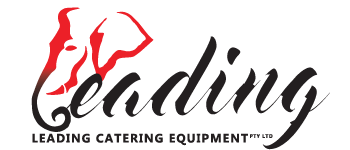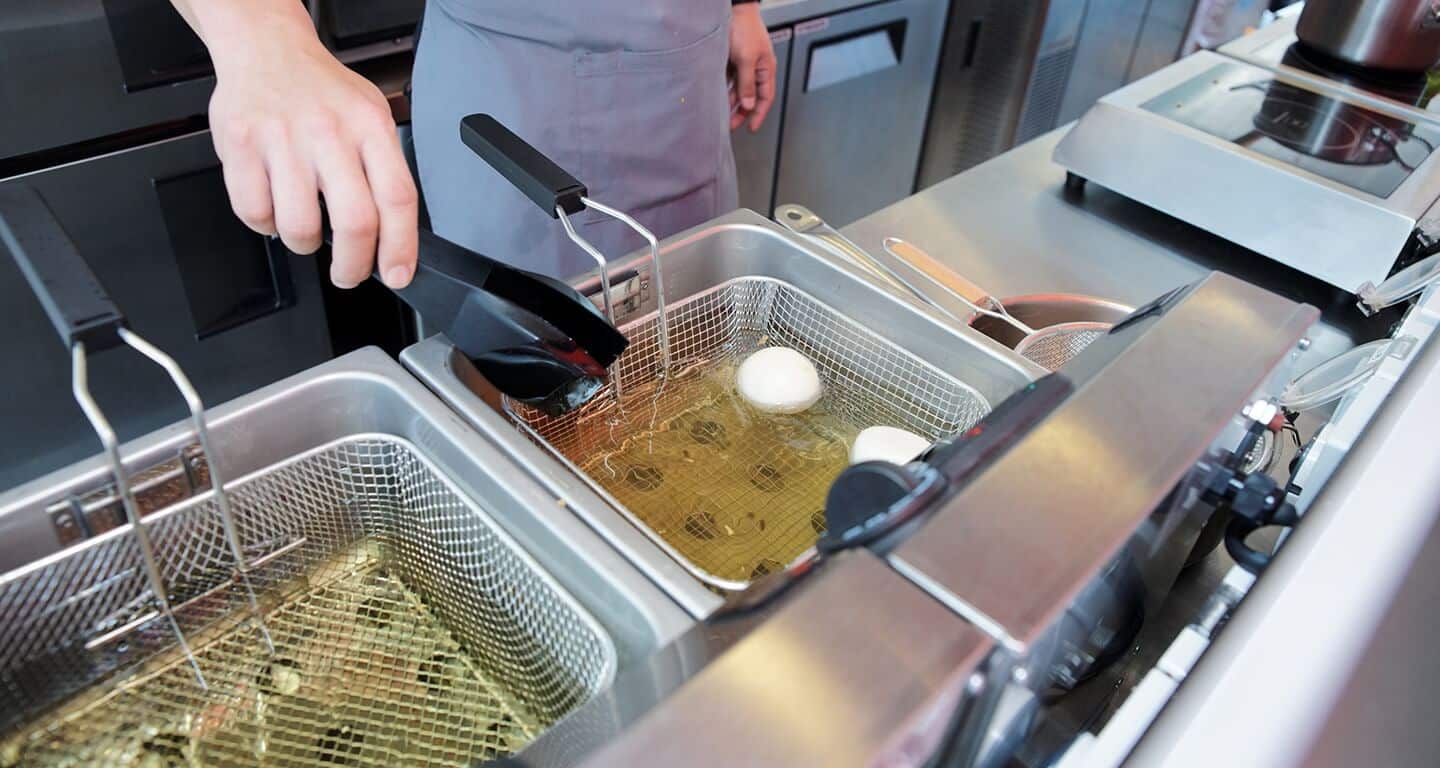Commercial electric deep fryers are essential equipment in busy kitchens, providing the capacity to cook large quantities of food quickly and efficiently. However, they also present high-security risks if not operated correctly. Ensuring the safe operation of deep fryers is crucial to prevent accidents, injuries, and potential kitchen fires. This blog will explore essential safety tips to help you operate commercial deep fryers securely and effectively in a bustling kitchen environment.
Streamline the process of evenly rolling dough, saving time and ensuring uniform thickness for perfect baking results. For further information, check out our Dough Rollers collection here.
- Proper Installation and Placement
The first step in ensuring the product safety is proper installation and placement. Follow these guidelines:
- Professional Installation: Have a qualified technician install the deep fryer to ensure it is set up correctly and complies with local regulations and security standards.
- Adequate Ventilation: Ensure the offering is placed in a well-ventilated area to prevent the buildup of hazardous fumes and excessive heat.
- Safe Distance: Keep a significant distance between the appliance and other kitchen equipment, walls, and walkways to reduce the risk of fire spreading and to provide easy access for cleaning and maintenance.
- Stable Surface: Place the fryer on a stable, level surface to prevent tipping and spills.
- Regular Maintenance and Inspection
Frequent upkeep and checks are vital to keep your deep fryer in secure working condition. Implement a routine maintenance schedule that includes the following tasks:
- Inspect for Damage: Regularly check the equipment for any symptoms of damage, such as cracks, leaks, and loose connections. Quickly resolve any problems to avoid accidents.
- Clean Filters and Vents: Regularly clean the fryer’s filters and vents to stop the collection of grease and residues, which can give rise to a fire hazard.
- Check Thermostats: Test the appliance’s thermostats and temperature controls to ensure they function correctly and accurately.
- Oil Filtration and Replacement: Filter and replace the fryer oil regularly to maintain quality and prevent overheating. Adhere to the supplier’s policies for oil changing frequency.
- Safe Operation Practices
Adhering to safe operation practices is crucial to avoid accidents and guarantee the effective use of your commercial electric deep fryers:
- Proper Training: Ensure all kitchen staff are adequately trained in the protected operation of the deep fryer, including how to handle emergencies.
- Monitor Oil Levels: Frequently check and preserve the appropriate oil levels in the offering. Overfilling or underfilling the fryer can lead to spills and overheating.
- Gradual Heating: Heat the oil gradually to the desired cooking temperature to prevent sudden temperature spikes that can cause the oil to splatter.
- Avoid Overloading: Do not overload the fryer basket, which can cause oil spills and uneven cooking. Adhere to the supplier’s instructions for the higher load capacity.
- Monitor Cooking: Never leave the model unattended while it is in use. Frequent monitoring is crucial to avoid mishaps and ensure food is cooked correctly.
- Personal Protective Equipment (PPE)
Wearing appropriate personal protective equipment (PPE) is essential to protect kitchen staff from burns and other injuries:
- Heat-Resistant Gloves: Provide heat-resistant gloves to staff handling the fryer baskets and hot oil.
- Aprons: Ensure staff wear flame-resistant aprons to protect their clothing and skin from hot oil splatters.
- Non-Slip Footwear: Equip kitchen staff with non-slip shoes to prevent slips and falls on greasy floors.
- Safety Goggles: Use safety goggles to save your eyes from hot oil splashes, especially when cleaning or filtering the electric gas deep fryer.
- Fire Safety Measures
These products pose a significant fire risk due to hot oil. Implementing fire safety measures is crucial to prevent kitchen fires:
- Fire Extinguishers: Install Class K fire extinguishers, specifically designed for grease fires, in the kitchen and ensure all staff know how to use them.
- Fire Suppression System: Consider installing an automatic fire suppression system over the fryer to extinguish any quickly occurring fires.
- Emergency Procedures: Set clear methods for dealing with fryer fires, including evacuation routes and communication protocols.
- Oil Disposal: To prevent fire hazards outside the appliance, dispose of used oil properly, following local regulations and guidelines.
Ensure fresher and more hygienic meat processing, giving you control over the quality and texture of the meat and making your culinary creations more versatile. Browse our Meat Mincer collection now.
- Handling Hot Oil Safely
Handling hot oil requires extra caution to prevent burns and spills:
- Cooling Oil: Allow the oil to cool to a safe temperature before handling or disposing of it. Hot oil can result in painful burns and injuries.
- Slow Pouring: Do so slowly and carefully when pouring or transferring oil to avoid splashing.
- Proper Containers: Use containers specifically designed for hot oil to prevent spills and leaks. Ensure the containers have secure lids and are clearly labelled.
- Avoid Water Contact: Never allow water to contact hot oil, which can cause violent splattering and potentially lead to fires.
- Safe Cleaning Practices
Keeping your product sourced from the best online electric deep fryer supplier like LCE clean is essential for safety and hygiene. Follow these safe cleaning practices:
- Turn Off and Cool Down: Always switch off the appliance and let it cool thoroughly before cleaning.
- Drain Oil: Drain the oil into a proper container and filter it if you reuse it.
- Remove Baskets and Grates: Remove fryer baskets and grates and clean them separately with warm, soapy water.
- Scrub Interior: Use a non-abrasive scrubber to clean the equipment’s interior surfaces, avoiding harsh chemicals that can damage the equipment.
- Rinse and Dry: Rinse thoroughly with clean water and dry completely before reassembling and refilling with oil.
- Preventing Grease Buildup
Grease accumulation can pose a fire-related risk and impact the performance of your equipment. Take these steps to prevent grease buildup:
- Regular Cleaning: Clean the fryer and surrounding areas regularly to prevent the accumulation of grease.
- Use Grease Traps: Install grease traps to collect excess grease and prevent it from clogging drains and causing backups.
- Clean Exhaust Hoods: Clean exhaust hoods and filters regularly to remove grease and avoid fire hazards.
- Temperature Control
Maintaining proper temperature control is essential for safety and food quality:
- Set Correct Temperature: Always set the offering to the correct cooking temperature as specified in recipes or manufacturer guidelines.
- Use Thermometers: Use accurate thermometers to monitor the oil temperature and ensure it remains within the secure cooking range.
- Avoid Overheating: Do not exceed the recommended maximum temperature for your offering sourced from the best commercial deep fryer supplier, as this can cause oil breakdown and increase fire risk.
Get fast and energy-efficient cooking by directly heating the cookware, with precise temperature control for consistent and safe cooking results, making them ideal for any kitchen. Check our Induction Cookers now.
- Emergency Preparedness
Being ready for any mishaps or emergencies is crucial in a busy kitchen:
- First Aid Training: Ensure all staff are trained in basic first aid, including treating burns and other injuries.
- Emergency Contact Numbers: Keep emergency contact numbers, including local fire and medical services, readily accessible in the kitchen.
- Drills and Simulations: Conduct regular emergency drills and simulations to ensure staff are familiar with procedures and can respond quickly in case of an incident.
Conclusion
Operating electrical deep fryers in busy kitchens requires careful attention to safety practices. These classic tips can minimise the risk of accidents, injuries, and fires, ensuring a safe and efficient kitchen environment. Proper installation, regular maintenance, safe operation practices, appropriate PPE, fire safety measures, careful handling of hot oil, thorough cleaning, grease buildup prevention, temperature control, and emergency preparedness are all essential components of deep fryer safety. Focusing on security saves your employees & customers and enhances the overall performance and longevity of your kitchen equipment.






